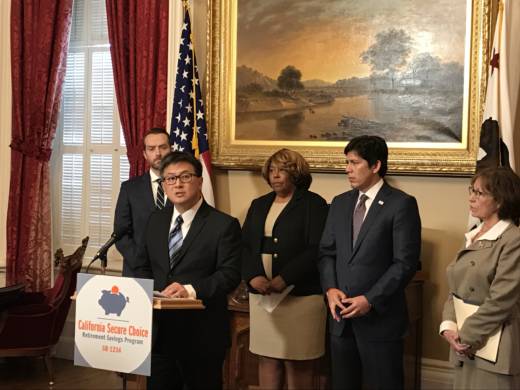California officials vowed to move ahead with a retirement savings program for the state's private sector workers, a day after losing the federal government's support for the initiative.
Senate President Pro Tem Kevin de Leon and State Treasurer John Chiang said Thursday that the state will still enact the Secure Choice program, authorized last year, that will create retirement accounts for nearly 6.8 million Californians. De Leon criticized opponents of the plan as representing the interests of large banks and brokerage firms.
"California will move forward with Secure Choice with or without Washington's blessing," said de Leon, who authored the legislation that created the program. "We will put the future and well-being of our workers over Wall Street greed any day of the week."
California's program would automatically enroll private sector workers into a state-run retirement program. Unless they opted out, employees would contribute 3 percent of their earnings and a state board would oversee and invest the funds.
